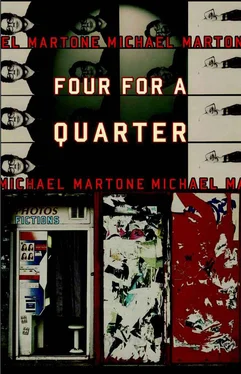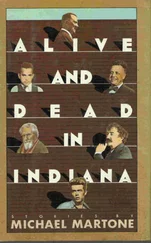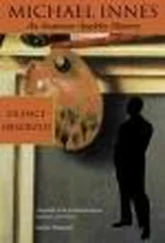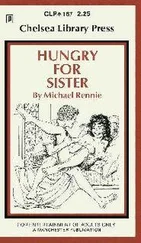Michael Martone - Four for a Quarter - Fictions
Здесь есть возможность читать онлайн «Michael Martone - Four for a Quarter - Fictions» весь текст электронной книги совершенно бесплатно (целиком полную версию без сокращений). В некоторых случаях можно слушать аудио, скачать через торрент в формате fb2 и присутствует краткое содержание. Год выпуска: 2011, Издательство: Fiction Collective 2, Жанр: Современная проза, на английском языке. Описание произведения, (предисловие) а так же отзывы посетителей доступны на портале библиотеки ЛибКат.
- Название:Four for a Quarter: Fictions
- Автор:
- Издательство:Fiction Collective 2
- Жанр:
- Год:2011
- ISBN:нет данных
- Рейтинг книги:3 / 5. Голосов: 1
-
Избранное:Добавить в избранное
- Отзывы:
-
Ваша оценка:
- 60
- 1
- 2
- 3
- 4
- 5
Four for a Quarter: Fictions: краткое содержание, описание и аннотация
Предлагаем к чтению аннотацию, описание, краткое содержание или предисловие (зависит от того, что написал сам автор книги «Four for a Quarter: Fictions»). Если вы не нашли необходимую информацию о книге — напишите в комментариях, мы постараемся отыскать её.
. In subject — four fifth Beatles, four tie knots, four retellings of the first Xerox, even the sex lives of the Fantastic Four — and in structure — the book is separated into four sections, with each section further divided into four chapterettes—
returns again and again to its originating number, making chaos comprehensible and mystery out of the most ordinary.
Four for a Quarter: Fictions — читать онлайн бесплатно полную книгу (весь текст) целиком
Ниже представлен текст книги, разбитый по страницам. Система сохранения места последней прочитанной страницы, позволяет с удобством читать онлайн бесплатно книгу «Four for a Quarter: Fictions», без необходимости каждый раз заново искать на чём Вы остановились. Поставьте закладку, и сможете в любой момент перейти на страницу, на которой закончили чтение.
Интервал:
Закладка:
JULY 4 TH, 20—, FORT WAYNE, INDIANA
That summer I went back home to sell my parents' house, living there, sleeping in my old room, getting the place ready to put on the market. I had to cull through everything, decide what I would put in the garage sale, what I would give away, what I would cart off to the dump. My father collected souvenir golf balls he kept in pressed-paper egg crates. Each ball was printed with a different stencil or decal commemorating some event, a company or tournament logo, sports team mascot, fortune cookie saying, motivational motto. My mother framed pictures using the same frames over and over, stripping out the picture and mat, replacing it with a new mat and photo, then storing the old one behind the new one sealed up inside the brown paper backing. Opening up the paper backing of a picture was like opening a Christmas present, with the gift being the layers and layers of past pictures, of annual Christmas photos, say, July Fourth picnics in the backyard, stashed there. The Christmas shots were department store studio pictures of the three of us and then just the two of them through the years. The wallet-sized copies had been sent out in the Christmas cards. I read science fiction at night, books about the future after a day of grubbing through the past. I read brittle paperbacks, foxing pocketbook editions I read first when I lived there — Dick and Clarke and Asimov and Bradbury's Martian Chronicles —on the same couch I had read them years before. I worked on curb appeal, cutting the lawn in a checkerboard pattern like my father had. I shaped the hedges, cleaned the gutters, painted the shutters, changed the seasonal wind sock from Easter's green and purple to the striped and starred bunting of Memorial Day that would do for the Fourth of July. The backyard butted up against the boundary of an office park with its cluster of brick and glass box buildings sloping away gently down the contour of a hill to a pond where a gaggle of Canada geese milled. In the parking lot of the nearest building, an endoscopy office, my parents used to watch the fireworks fired from the top deck of the parking garage on the college campus on the other side of the bypass. It was easy to drag some chairs and a cooler to a spot there and watch the lot fill up with pickup trucks and vans of families arriving to hold vigils of the night coming on, the sun falling toward the campus. In the dusk, legal bottle rockets lifted off of truck beds. Firecrackers sputtered on the ground next to the gathering vehicles as they crept along looking for a parking spot. Cherry bombs spooked the geese that spat. In the black windows of the next building over, I could see the glinting rows of computers, their screen savers, I imagined, flickering and rolling. A contract company of the post office that remotely examined badly addressed mail and routed it remotely to where it was supposed to go. The screen savers saving the screen, the flashes there reflected in the glass of the windows as if each window pictured its own tiny fireworks display. I thought about the workers who would be back soon enough at those consoles after the holiday, scanning the lost and diverted mail scrolling on the screens, attempting to read the blots and smudges splattered on the envelopes, the fractals and fragments of the stuttering hands of correspondents from somewhere. They would try to put a spine in some smear, make fragments mean something once again, the parts more than the whole or at least something whole enough to mean. Like that “i“ there in that cloud of inky sky. I imagine the dark dot dotting that “i“ as a concentrated black hole, an absence collapsing into the zenith of a rocket's launch, exploding over the straight streak of its exhaust. For that instant, a lit mass of a million billion pieces flaring then nothing. More than nothing. And nothing more.
Chili 4-Way
MICHIGAN PIKE
When you were in college, at Butler, you would drive out Michigan Pike to eat at the Steak 'n Shake there. It looked like a Steak 'n Shake, but it wasn't quite right. It looked the same as other Steak 'n Shakes — black-and-white with the chromium fixtures and the enameled tiled walls and ceramic tile floor. The staff wore the paper hats and the check pants, the white aprons, and the red bow ties. But often you were the only customer. You sat at a table, not the counter, and scanned the menu as as many as a dozen waiters and waitresses waited for you to order. This was a training restaurant for the restaurant chain, self-conscious of its self-consciousness, a hamburger university. There were waiters and waitresses in training watching how your waiter would take your order, and there were waiter and waitress trainers who were being followed by other waiters and waitresses in training watching the waiter and the waiters and waitresses watching the waiter taking your order after bringing several glasses of welcoming water. They crowded around the table in their spotless uniforms like hospital interns around your bed, waiting, taking notes on their checkered clipboards. There were television cameras everywhere and television monitors everywhere displaying what the television cameras where recording. There, the grill cook and the dozen or so trainee grill cooks pressed with the fork and spatula the meat pucks into perfect steak burgers. There, one after the other flipped each patty once, crossed the instruments at right angles and pressed down again forming the perfect circles of meat, the evidence of this broadcast on snowy monitors next to those displaying the scoops of ice cream falling perfectly and endlessly into a parade of mixing shake mixing cans. There was even a monitor that showed the bank of monitors and one that showed the monitor showing that monitor, and in it the endless regression of televisions within televisions, the black-and-white clad waiters and waitresses and the grill cooks and prep chefs moving like a chorus line, constructing your two doubles that you had ordered an acceptable duration of time ago. And the caterpillar of service snaked with your plates of perfectly plated food held by the waiter at the head-end trailed by a conga line of identical servers back to your perfect table where the television cameras panned to focus on you eating your two doubles and showing you eating your two doubles in the monitor that showed the monitor of the double you eating. And everyone in the place made sure you had everything you needed and said they'd be back to check and then came back to check and asked you if you wouldn't mind filling out the survey about the service and food and a survey about the survey and the survey about the survey's survey. The sandwiches were perfect. And the milk shake. The French fries were all exactly the same length and arranged in a pleasing random jumble. The real stainless steel cutlery gleamed, and the real dishes and the glass glasses gleamed. As you left, at every empty table, an employee wiped and polished the Formica tabletop, watched over by two or three others, nodding unconsciously in what you took to be approval.
96 THSTREET
She would meet him when he was in town, when he was going through town, at the Steak 'n Shake right off I-69 on 96 thStreet. They both remembered when this part of the city had not been part of the city, had been nothing but farmland, nothing but woods. She grew up in the city. He grew up in another part of the state. They met later after both their lives were settled. Now 96 thStreet was all strip malls and box stores and freestanding drive-ins. Sometimes, after they would meet at the Steak 'n Shake, they would decide to drive separately to one of the motels nearby and spend a few hours there before she would go back to work, her family, her home and he would get back on the road to drive back to his home, his family. Or he would stay the night, call his wife to say he was too tired to keep driving, would get an early start the next day. On the nights he stayed over, he drove back to the Steak 'n Shake and had dinner, trying to get the table they had shared hours before. In the parking lots outside, as the parking lots' lights came on, teenagers gathered in crowds of cars. Everyone out there milled about, switching rides, changing places, slamming the doors, flashing the car lights. Some of the kids would come inside to order shakes and fries, take the order back out between the pools of light to pass around the drinks and the bags of fries to their friends in the shadows. He watched through the plate glass with its camouflage of advertisement the purposeful loitering in the lots outside. Earlier that day at the same table, they had talked about how things had changed and how they wanted them to stay the same. She always ordered a Coke but Steak 'n Shake had its own brand of pop. King Cola. It tasted the same, she always said, but it was different. He always ordered chili, and as they talked he crushed each oyster cracker separately in the plastic bag, one at a time, turning the crackers into finer and finer crumbs, a dust of crumbs, before he would tear open the bag and pour the cracker crumbs into the bowl of chili. That day when she ordered the King Cola she was told that Steak 'n Shake now served regular Coca-Cola. The waitress waited while she considered. There was a Diet Coke now too, and that's what she ordered after she thought about it. When the waitress came back with the drink, she dropped off the bags of crackers, and without thinking, he began to pinch and pop the crackers inside the bag. He asked her how the new cola tasted. She used a straw. The same, she said, and different.
Читать дальшеИнтервал:
Закладка:
Похожие книги на «Four for a Quarter: Fictions»
Представляем Вашему вниманию похожие книги на «Four for a Quarter: Fictions» списком для выбора. Мы отобрали схожую по названию и смыслу литературу в надежде предоставить читателям больше вариантов отыскать новые, интересные, ещё непрочитанные произведения.
Обсуждение, отзывы о книге «Four for a Quarter: Fictions» и просто собственные мнения читателей. Оставьте ваши комментарии, напишите, что Вы думаете о произведении, его смысле или главных героях. Укажите что конкретно понравилось, а что нет, и почему Вы так считаете.












